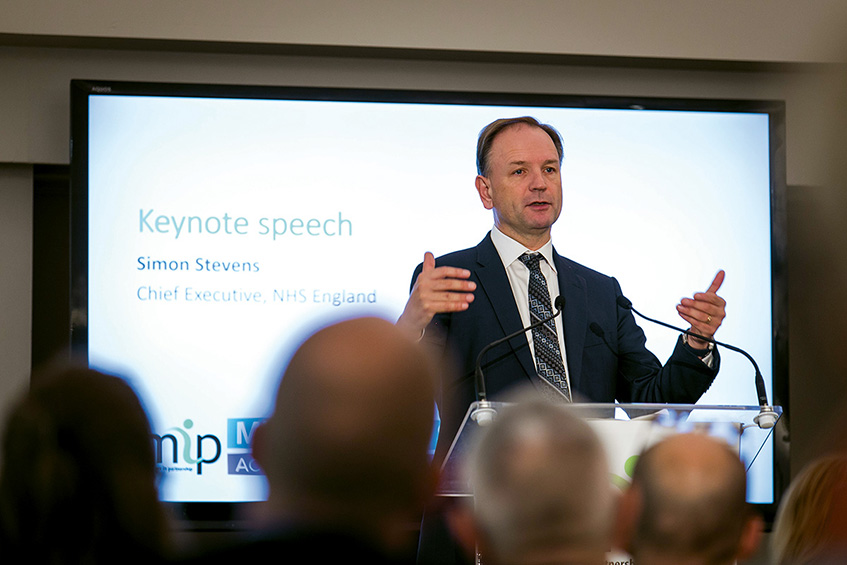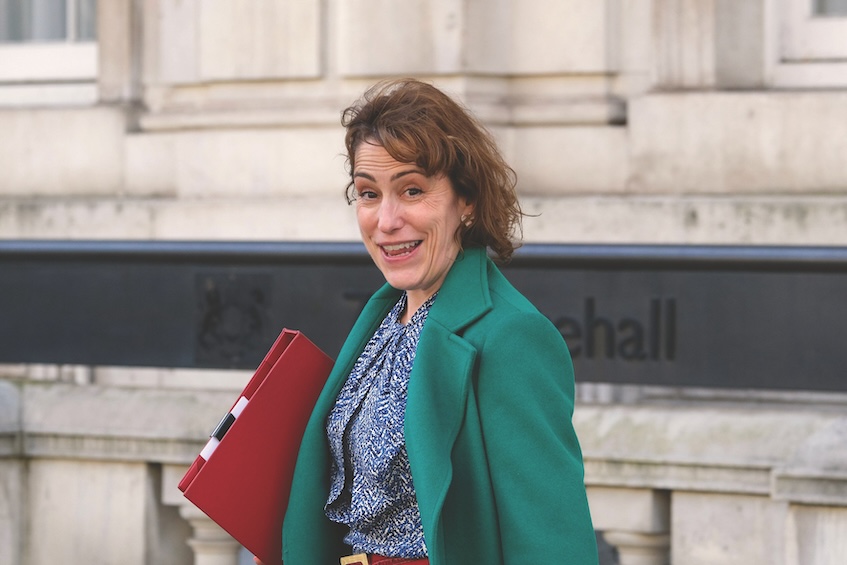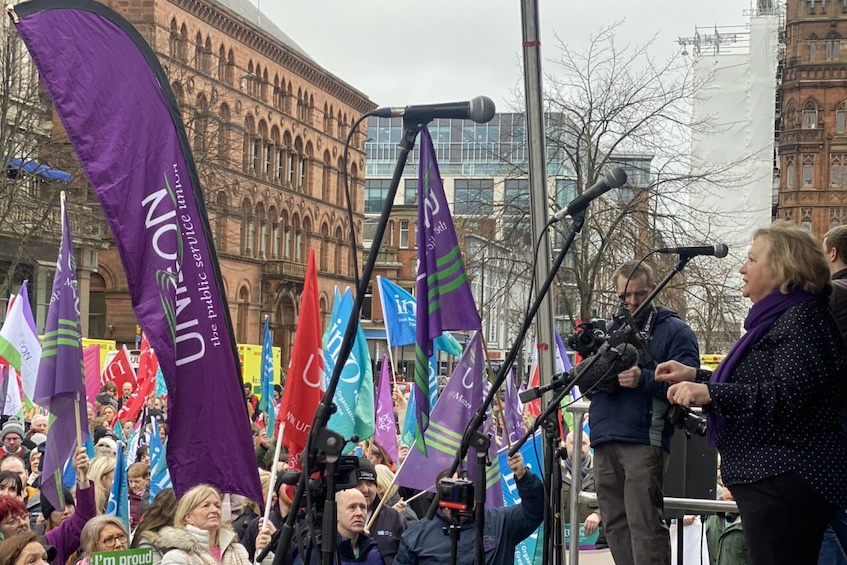MiP Summit: Stevens calls for extra money for NHS pay

Forcing NHS organisations to fund staff pay rises from existing budgets would be “an own goal of the first magnitude”, NHS England chief executive Simon Stevens told delegates in in his opening speech at MiP’s Summit.
Speaking three weeks before Chancellor Philip Hammond’s conditional promise to fund pay rises for most NHS staff, Stevens warned ministers that “they have some big choices coming up over the next year or two” on pay and NHS funding. “It’s very important pay rises for the NHS are properly funded rather than in some sense having to be offset by other parts of what we’re doing. That would be an own goal of the first magnitude,” he said.
In his Budget on 22 November, Hammond subsequently agreed to find extra cash for pay rises above 1% for Agenda for Change staff, if NHS employers and unions can agree on pay reforms.
Managers “lead the charge”
Thanking MiP members “in advance” for their efforts in what was expected to be “a highly pressured winter”, Stevens urged NHS managers to “lead the charge” in tackling the big workforce challenges – including dealing with staff shortages, encouraging diversity and improving employees’ mental health.
The focus of operational management was shifting towards “collaborative working” and away from the competitive model which has predominated for the last 25 years, Stevens said. “Senior leaders and boards will need to accept responsibility not just for their own institution but also to work more collaboratively in partnership with a range of other organisations in their area.”
Healthy workplaces
Citing evidence from the 2016 NHS staff survey, which found that 37% of staff were experiencing work-related stress or mental health problems, Stevens pledged better financial incentives for employers to promote healthy workplaces, and action to meet the standards set out in the independent review of workplace mental health by Lord Stevenson and MIND’s Paul Farmer.
“I’m calling not just on MiP but the whole trade union staff side to work with NHS Employers, NHS England and NHS Improvement to formulate a detailed action plan,” he explained.
Stevens, who co-chairs the NHS Equality and Diversity Council, said it was now time to consider “explicit” recruitment goals or targets for black and minority ethnic staff to improve workforce diversity, particularly at senior levels.
He also said newly “differentiated incentives” might be needed to get more people to work in some parts of the country, and in specialities such as child and adolescent psychiatry, learning disability and general practice, where skill shortages were most acute.
|
MiP has welcomed moves to speed up pay progression for Band 8 and 9 managers and tackle long-standing problems with the Agenda for Change pay system that deter staff from seeking promotion.
23 September 2024
| By MiP
News
|
|||||
|
MiP has welcomed a 5% pay rise for very senior and executive senior managers in the NHS in England, after the UK government accepted the latest recommendations from the Senior Salaries Review Body (SSRB).
09 September 2024
| By MiP
News
|
|||||
|
MiP has welcomed the 5.5% pay rise for NHS staff on Agenda for Change as “a notable shift” and a “good starting point” for future negotiations.
04 September 2024
| By MiP
News
|
|||||
|
The health secretary’s plans to cut 5,500 management jobs to fund community services if the Conservatives win the general election have been criticised as “not credible” by Labour and “paper thin” by MiP.
25 June 2024
| By MiP
News
|
|||||
|
After months of industrial action, NHS workers in Northern Ireland have accepted a 5% pay offer for last year negotiated by health unions and the Department of Health.
05 April 2024
| By MiP
News
|
|||||
|
MiP alongside 13 other health unions have called for an above inflation pay rise for all NHS staff.
12 February 2024
| By MiP
News
|
|||||
|
Help MiP and UNISON prepare for the 2024 pay round by taking part in our survey on NHS pay. It only takes a few minutes.
18 December 2023
| By MiP
News
|
|||||
|
MiP and 13 other NHS unions announce they will not submit evidence to the NHS Pay Review Body for the 2023 pay round while industrial action is ongoing.
11 January 2023
| By MiP
News
|
|||||
|
MiP is launching a ‘Sounding Board’ and a new survey to gauge the views of its board-level members and help the union prepare evidence for the 2023 pay review body report.
22 December 2022
| By MiP
News
|
|||||
|
A majority of the public believe an above-inflation pay rise for NHS staff would be fair and workers would be justified in taking strike action if this year’s wage increase fails to match the rising cost of living, according to a new poll.
18 July 2022
| By MiP
News
|
|||||
|
Related News
-

MiP responds to the abolition of NHS England
Government risk repeating same mistakes as Lansley by abolishing NHS England and cutting more staff from ICBs, says MiP.
-

NHS England and central staff could be cut by 50%, NHSE has announced
Government planned cuts at NHS England go much further than previously announced, with up to 50% of staff at risk.
-

New MiP survey shows growing support for principle of regulating managers, but warns it won’t improve patient safety
MiP’s member survey on regulating NHS managers shows managers are still not convinced regulation will improve patient safety or raise standards, despite growing support for it in principle.







